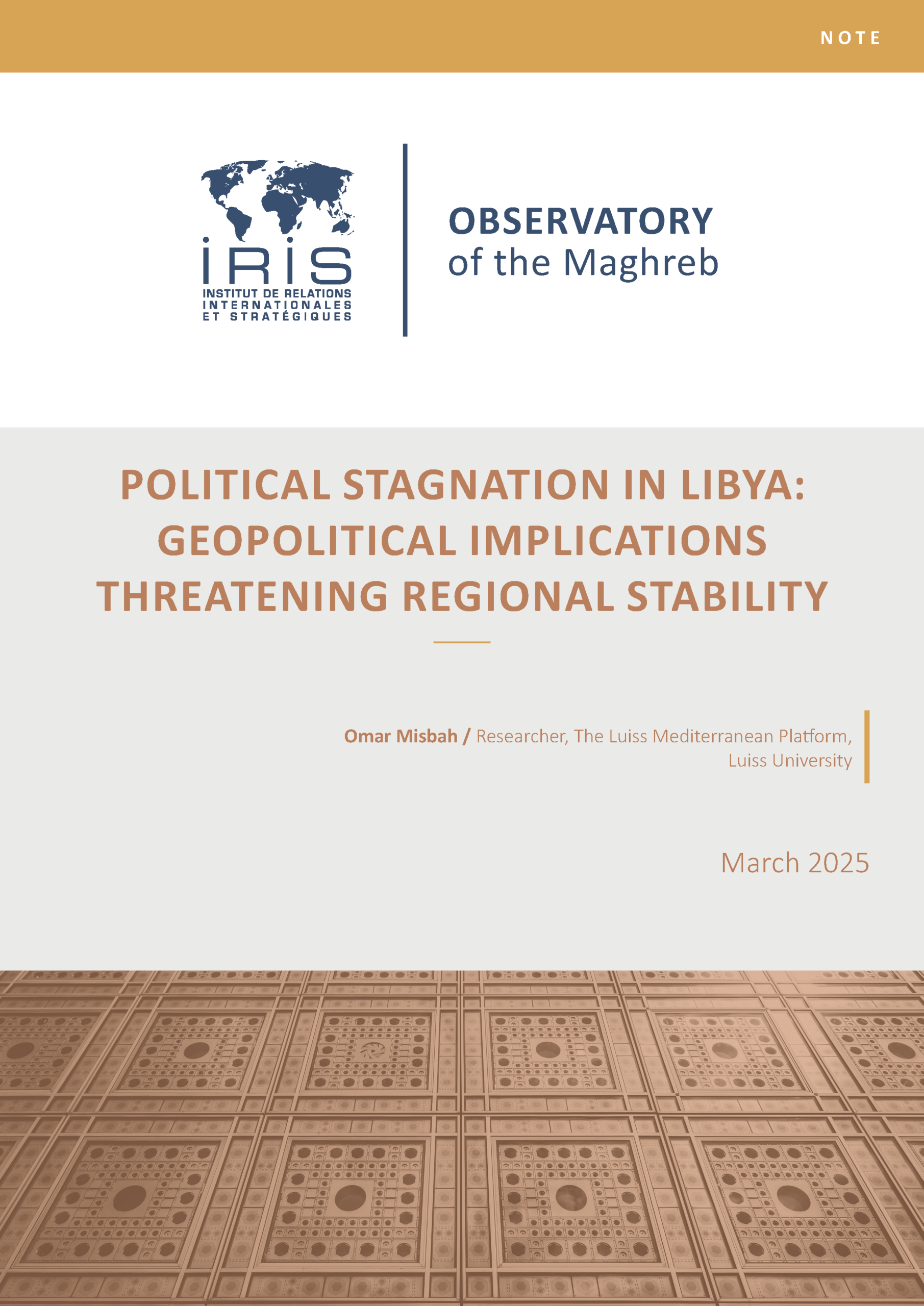Notes / Observatoire du Maghreb
10 mars 2025
Political Stagnation in Libya: Geopolitical Implications Threatening Regional Stability

Since the fall of the Gaddafi regime in 2011, Libya has been trapped in a cycle of political and security conflicts that extend beyond its borders, affecting the entire region. Following the second civil war in 2014, the country found itself deeply divided, with various factions fighting for power without any sign of comprehensive reconciliation. All political attempts, including the efforts of the UNSMIL, have failed to achieve stability.
Despite previous attempts to reunify the government, the failure of the elections in December 2021 reignited the political divide, pushing the situation into a state of cautious stagnation. This deadlock has not only affected Libya but has made it a focal point for regional and international conflicts, as external powers’ strategic and economic interests intertwine. This article examines the reasons behind this deep political stagnation, its wide-reaching geopolitical consequences, and potential solutions that could pave the way for stability in Libya and the region.

